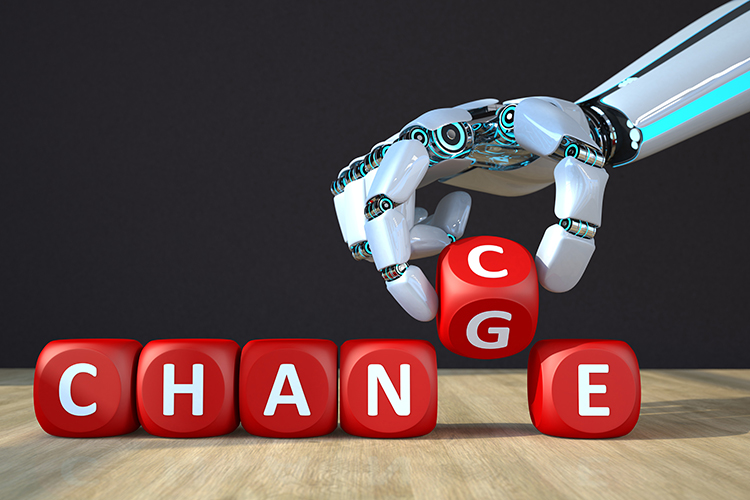We have known for more than a century that machines have supplanted humans, at least on the physical level. This should be welcomed, of course, because in fields such as public works or freight transportation, it is a major advance for humanity as a whole. But for Yuval Noah Harrari, the Israeli academic whose first major book – Sapiens – A Brief History of Humankind – was a global best-seller, the issue at stake today is the eclipsing of humans on the cognitive level. And this could have very far-reaching consequences.
As a study by Oxford researchers Frey and Osborne tells us, 99% of insurance agents and telemarketers will lose their jobs by 2033, along with 98% of sports referees, 97% of cashiers and 91% of tour guides. The difficulty facing humans at the turn of the 2030s will concern the creation of jobs that are not immediately replaced by artificial intelligence. And for Harari, this will be no easy matter.
In this second book – Homo Deus: A Brief History of Tomorrow -, which is just as sensational as his first, Yuval Noah Harari sets out to show us that the evolution of Homo Sapiens into Homo Deus is as inevitable as a new software upgrade, and gives many reasons for the inevitability of this transformation. Here are two of them:
- Firstly, medical research is progressing and is intended to find solutions to health problems, but at the same time it increases human capacities. Medication designed to treat memory impairment in older people can also significantly improve younger people’s memories. This can be likened to the Viagra syndrome: designed by Pfizer laboratories to help men suffering from what is commonly referred to as “erectile dysfunction”, this product quickly became renowned as a powerful aid to sexual performance.
- Secondly, artificial intelligence is progressing faster than we think. A recent study of 86,220 volunteer Facebook users shows that if you have “liked” something more than 300 times, the algorithm can predict your opinions and desires better than your friends and family could. As the author points out in an all-too-accurate analogy, when we surrender our data to the big American companies for messaging services or comical dog-and-cat videos, we are following in the footsteps of those natives to whom the European conquistadors gave a few colourful beads in exchange for entire islands and huge territories.
Homo Sapiens’ transformation into Homo Deus is bound to be accompanied by some collateral damage
No, “dataism” is not a form of humanism. Homo Sapiens’ transformation into Homo Deus is bound to be accompanied by some collateral damage. So it is difficult to predict what will happen to managers in a few years’ time. Will they be next in line for “uberization?” This raises the question of what purpose managers will actually serve, since the algorithm developed by this Californian company supervises drivers automatically.
Take the striking example mentioned by our essayist, of a Hong Kong company which decided to appoint an algorithm named “Vital” to its board of directors, three years ago. Like the other board members, this algorithm reviews the venture capital firm’s possible investments, but its opinions are based on the aggregation of mountains of data that none of the other board members are capable of analysing in such detail. The author examines the implications, raising the prospect of a future in which this algorithm becomes an excellent investor, makes a fortune and acquires real estate that it can then rent to us. And if we fail to pay the rent, then the algorithm will in all likelihood hire a lawyer to take us to court. At this point, we will see very rich algorithms owning most of the planet, alongside other non-human entities like states and corporations, and very poor managers.
This book, which has deservedly become a worldwide best-seller, raises a host of questions that our generation will have to answer. For the first time in history, intelligence and consciousness will be definitively separate. What importance will we then attach to consciousness, as opposed to machine intelligence? And what kind of specifically human intelligence will we use to counter AI? We will soon need to make these choices.
This review was previously published in French by Xerfi Canal.
This post gives the views of its author, not the position of ESCP Business School.
